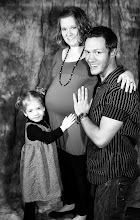Are you moving soon?
Moving is a big decision. It's one of the most significant decisions you will ever make in your life, and it can be stressful to plan for everything that needs to happen before, during, and after the move. Fortunately, here's a guide on what you should do before moving so that you can be sure of your subsequent actions.
You know how overwhelming planning for a move can be – especially if it's your first time or if many people are involved in making decisions. That's why there's this comprehensive list of things to consider when preparing for a move so that no matter who is involved or where they live, everyone will be on the same page as they start their new lives together.
Check out this guide on what you should do before moving today.
Talk to a Realtor You Can Trust
Before you move into your new house, you should talk to the realtor you are buying it from. A realtor will be able to help you with all of the moving-related matters you don't know about. They can help you with everything from finding a moving company that you will be able to trust so you won't have to worry about the safety of your possessions to knowing what you need to do to get the house ready for you.
It would be best to talk to them because they will know specific things you don't. For example, you may not know that you need to pull permits before moving into your new house. A relocation agent will be able to assist you with this as well as any other moving-related issues you don't want to deal with, such as house purchasing. If that's the case, you can sign up for a free trial with reputable realtors in your community.
Consult Widely
Before you take the plunge and agree to move, you should consult widely. This means you should ask your friends, family members, and co-workers if they think you should go.
You may be in a rut in your current role, so you should seek out anyone you can to see if you are making the right choice by moving.
Plan Your Finances
Before you set off to your new home, you should make sure you have a good understanding of how much money you will need and what you can expect to spend that money on.
Do you know how much you will be paid in your new home, and do you know what you can expect to spend it on?
You may want to take a look at the average living expenses for the state you're moving to.
For example, you can expect to pay $60 per week on rent, and you will also need to budget $300 a month for groceries.
You should set up a weekly or monthly spending plan to know what you're spending your money on, and you'll be prepared when it's time to pay bills.
Consider Your Needs
Considering your needs will be a good thing before you move because you will not have to worry about what you will do after you move.
You will need to research the town you are moving to. You should also make sure you have another source of income. If you plan on transferring schools, you may want to consider what you would do if you didn't get accepted or had to take a leave of absence because you could not afford tuition anymore.
Change Your Address
You might want to make the most of your move by updating your address. Making sure you update all of your information is the best way to prepare for your new life in a new location.
If you are looking to get started right away, you should contact the United States Postal Service (USPS) for assistance in updating your address. They can help you change your address either online, or you can call them.
Conclusion
Moving is a big decision that can have long-term financial and emotional consequences for you, your family, or your business. Though it's not always an easy process to manage on one's own, there are ways to make the transition easier by following the five simple steps above.

Comments